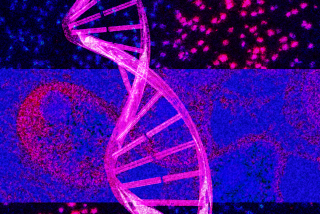Data on terrorism littered with flaws
WASHINGTON — The Justice Department’s inspector general on Tuesday questioned the accuracy of anti-terrorism statistics gathered by the FBI and federal prosecutors, saying they included immigration violations, drug trafficking and marriage fraud cases even when there was no evidence linking them to terrorist activity.
In a 140-page audit released Tuesday, Justice Department Inspector General Glenn A. Fine found that nearly all of the department’s terrorism-related statistics on investigations, referrals and cases from September 2001 to February 2005 were wrong.
But Fine’s office concluded that the flawed data compiled by the FBI, the Justice Department’s Criminal Division and the Executive Office of U.S. Attorneys did not appear to be intentional or politically motivated. Instead, most mistakes appeared to be the result of decentralized and “haphazard” ways of collecting the information, or disagreements over what constitutes an anti-terrorism case.
The result was that while federal authorities over-inflated the number of anti-terrorism cases half of the time, they undercounted about an equal number of cases, the audit found.
The statistics were reported in operational documents such as Justice Department budget requests and annual financial statements and statistical reports. They were used to help the department and its overseers in Congress assess the government’s effectiveness in combating terrorism, and to help determine the budgets of the FBI and federal prosecutors from one year to the next.
Some investigations and prosecutions were counted as anti-terrorism cases even if they involved workers arrested at airports on suspicion of immigration violations or for having false documents. Another case included a marriage-broker who had been convicted on charges of aiding and abetting marriage fraud between U.S. citizens and Middle Eastern or African males eager to live in the United States, but who had no demonstrable ties to terrorism.
“We do not agree that law enforcement efforts such as these should be counted as anti-terrorism,” the audit said.
All three agencies -- the FBI, Justice Department and U.S. attorney’s executive office -- concurred with some of the findings and took exception to others but agreed to put in place reforms recommended by the inspector general.
Dean Boyd, the national security spokesman for the Justice Department, said in an interview that the department had agreed to change the way it counted and classified anti-terrorism cases, and that it would for the most part not include immigration cases and others with no link to terrorism. He also said the audit itself proved that federal authorities did not seek to purposely inflate any statistics for political gain, because half the cases involved undercounting terrorism investigations, prosecutions and convictions.
Sen. Charles E. Grassley (R-Iowa), a senior member of the Senate Judiciary Committee and frequent critic of the FBI and Justice Department, said the findings underscored a larger mismanagement problem.
“Unfortunately, this isn’t the first time someone has pointed out to the department that their statistics for terrorism cases were incorrect,” Grassley said. He said that similar questions were raised in 2003 about the accuracy of the claims of the department’s enforcement of terrorism after a report was released by the Government Accountability Office.
“From the looks of the inspector general’s report today, it doesn’t appear that much has changed,” Grassley said. “There’s no question our country faces a daunting task in fighting terrorism. But it’s high time the Justice Department, the FBI and the U.S. attorneys come to the Hill with solid numbers instead of sugar-coated stories.”
*
More to Read
Sign up for Essential California
The most important California stories and recommendations in your inbox every morning.
You may occasionally receive promotional content from the Los Angeles Times.










